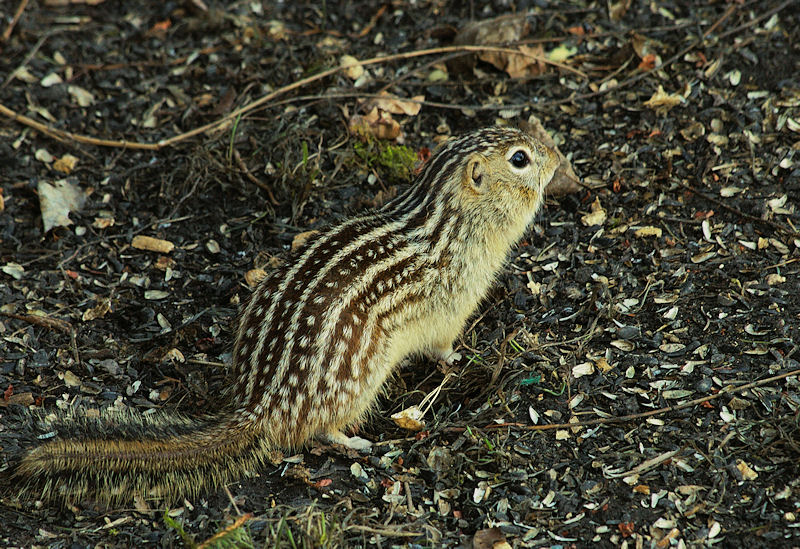I was very impressed by the graduate and undergraduate students who presented their research at the Scholander poster competition sponsored by the Comparative and Evolutionary Physiology section of the American Physiological Society this afternoon. I am sure the winner of the competition will be very difficult to select.
Some highlights included:
Bridget Martinez, graduate student at the University of California - Merced whose research focused on hormonal changes that occur with fasting in elephant seal pups. In mammals, food deprivation leads to lower thyroid hormone concentrations, which helps to reduce metabolism. Fasted elephant seal pups, on the other hand, respond to fasting with increases in thyroid hormone. Her research is attempting to figure out why the elephant seal pups have such a different response to fasting.
 Image of obese horse grazing from www.myequineclinic.com
Image of obese horse grazing from www.myequineclinic.com
Dillon McCannon, Undergraduate student at Beloit College, Wisconsin whose research is designed to characterize the development of diabetes in horses as they age and gain weight. Resistance to the glucose lowering effects of insulin in horses can results in a condition called laminitis. This condition is caused by inflammation of the connections between the pedal bone and the hoof, called laminae. It can cause the pedal bone to sink or rotate resulting in chronic laminitis.
 Thirteen-line ground squirrel image from Wikimedia
Thirteen-line ground squirrel image from Wikimedia
Mallory Ballinger, University of Minnesota - Duluth presented her work on thirteen-lined ground squirrels which showed, surprisingly, that the brain of the squirrels actually requires more fuel to function properly during hibernation that in other times of the year to deal with the changing demands that occur with hibernation.
While we are on the topic of squirrels, Yvonne Dzal, University of British Columbia presented research describing variations in how mole rats, bats and ground squirrels deal with hypoxia. According to her findings, both mole rats and bats simply lower their metabolic demands whereas ground squirrels use quick ventilatory responses to match their oxygen supply to meet the metabolic demand. Fascinating!
More tomorrow!


Those are some beautiful shots there, it is very interesting to learn more about squirrels than I thought, they actually are amazing. This article gave me the zeal to study them more and this is really great, thanks
from: 15128212
I have always been intrigued by squirrels. It is amazing how they use most of they brain fuel while hibernating but they are normally very energetic and hopping from one place to another.
15057756
The fasting elephant seal pups stole my attention, it is interesting to know that fasting increases their metabolism.In humans the opposite is true. I would really like to know the reason behind this.
u15081738
I enjoyed reading more about diabetes cases in horses. I was shocked to find out that it is very similar to human diabetes. The fact that the treatment for laminitis, using NSAIDs could be seen as harmful is alarming. Are there any other treatments that do not pose a threat to the horses health?
I have never regarded squirrels as fascinating creatures, but I find it amusing that their brains require more energy during hibernation than any other time of the year, especially considering their hyperactivity throughout a normal day.
It also strikes me as to how elephant seal pups' metabolism increase during a fast. Their bodies should conserve energy by reducing metabolic processes, but the opposites seems to occur here. I am keen to see what Ms. Martinez's research finds.
I have never seen squirrels as amazing creatures, but I find it truly fascinating that their brains require more energy during hibernation, than their normal, hyperactive, day.
I also find it strange that the metabolism of elephant seal pups increases during a period of food deprivation. To my knowledge, the metabolism is supposed to decrease, due to the fact that the body saves energy by reducing metabolic processes. However, in this case, the opposite is true, and I am really curious as to why this occurs.
I always find studies about living organisms and their behavior very amazing.You get to learn so much and there is still more to learn everyday.Whether they are small or big,they all have something fascinating about them.15233538
I really enjoyed reading this. I find it remarkably fascinating that squirrels require more energy to function during hibernation than in any other time of the year. I also found it interesting that horses develop diabetes as they age and gain wait. This is also interesting as it is similar to human diabetes. I am also fascinated by the fact that fasting in seal pups increases metabolism. I am interested to find out why this is the case, because in humans metabolism decreases with food deprivation.
(15014518)
it is humbling to see that this generation of students is already taking the driver's seat in their own research and advancements of science. i am really intrigued by Bridget Martinez' research on the biochemical response elephant seal pups have to fasting. i cant wait to find out how increasing their metabolism during fasting has lead to the success of the species.
14215935